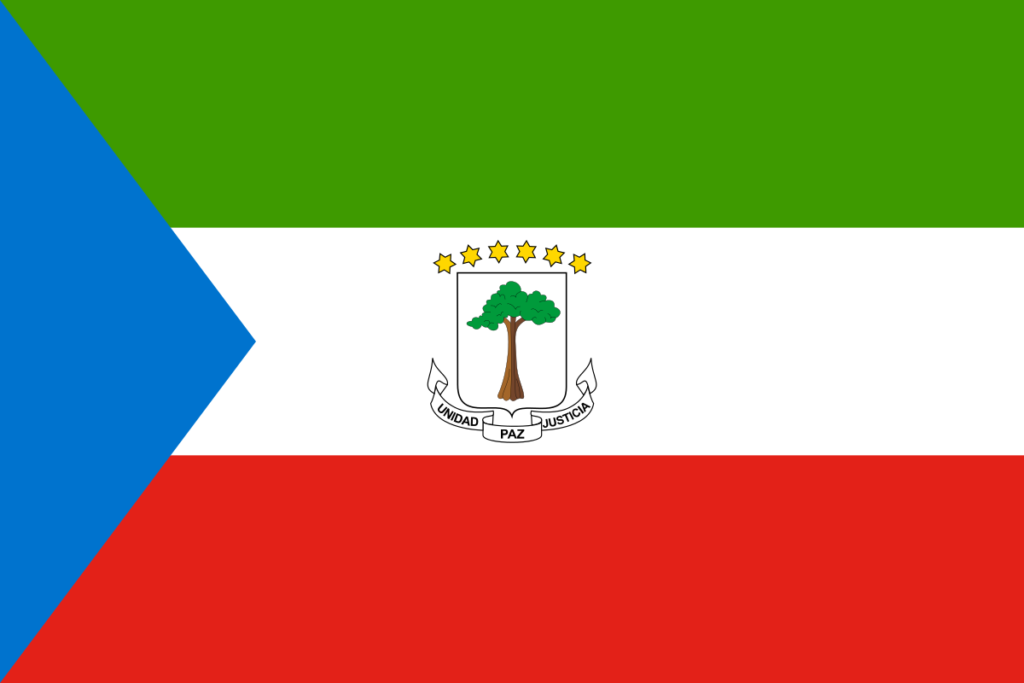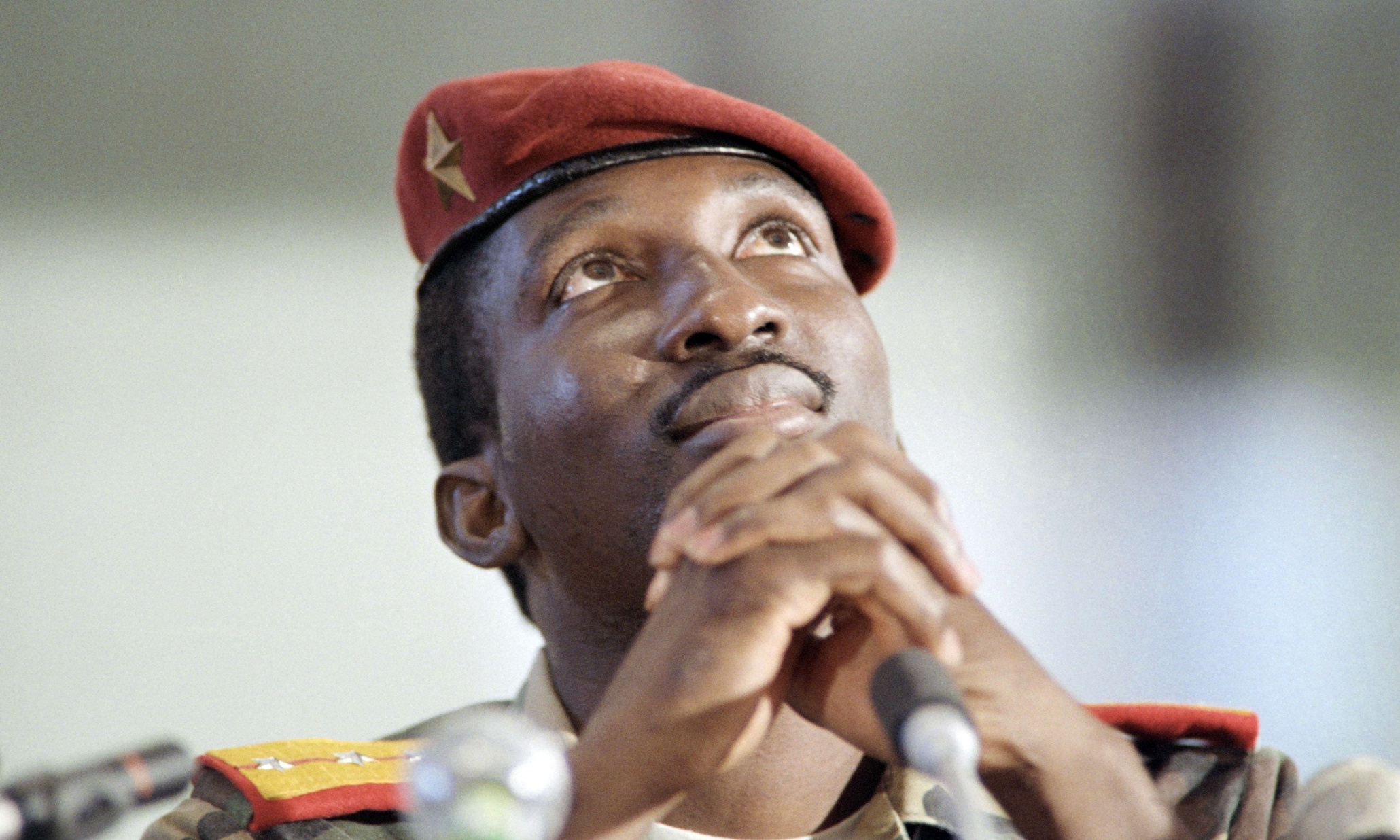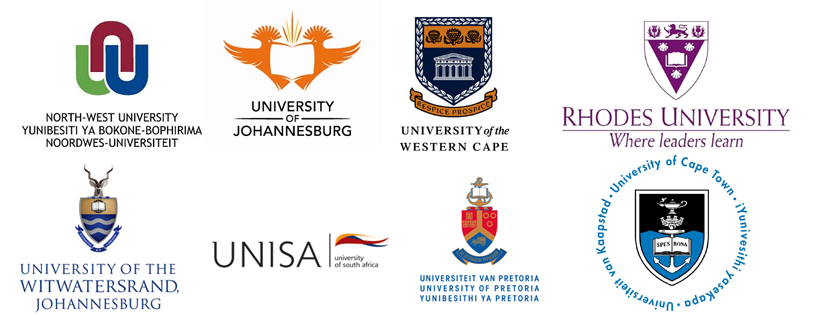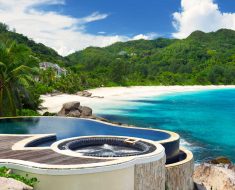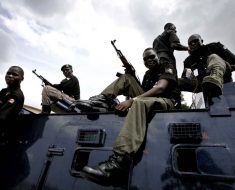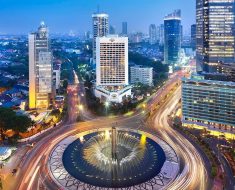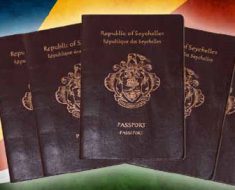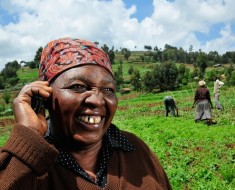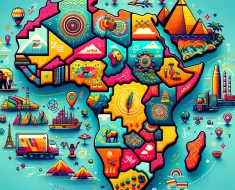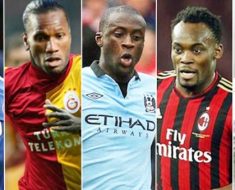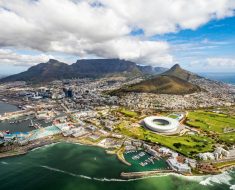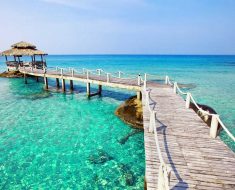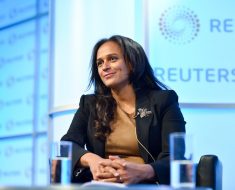Equatorial Guinea is considered to be one of the “least free” countries in the world.
Equatorial Guinea is 1 of 10 African countries with a population of less than one million, based on projected estimates. The 2015 projected population for this country is listed at only 845,060, however, 2015 census results claim over 1.2 million individuals live here. This conflicting information is common in countries with unstable governments.
President: Col. Teodoro Obiang Nguema Mbasogo (1979)
Prime Minister: Vicente Ehate Tomi (2012)
Total area: 10,830 sq mi (28,050 sq km)
Population (2014 est.): 722,254 (growth rate: 2.54%);
Capital and largest city (2011 est.): Malabo, 137,000
Monetary unit: CFA Franc
Communications: Telephones: main lines in use: 14,900 (2012); mobile cellular: 501,000 (2012).
-
Equatorial Guinea is the smallest African country to be a member of the United Nations.
-
The third largest oil exporter in Sub-Saharan Africa
Equatorial Guinea is the third largest oil exporter in Sub-Saharan Africa. Crude oil accounts for 69% of its export followed closely by petroleum gas, which accounts for 23% of exports. At the current value, this fetches $4.1 billion and $1.3 billion respectively thus leaving it with a handsome trade surplus of $4.2 billion after factoring in its imports of about $1.6 billion.
-
Equatorial Guinea is the only country in Africa to have Spanish as an official language.
Equatorial Guinea was a Spanish colony on 2 separate occasions: between 1778 and 1810 and from 1844 to 1968. Because of its long influence over the country, Spanish has remained an important language. In fact, Equatorial Guinea is the only country in Africa where Spanish is an official language. Approximately 67.6% of the population can speak it. Spanish is the language used for public administration and education.
-
Has one of the worst human rights records in the world
Equatorial Guinea’s authoritarian government has one of the worst human rights records in the world, consistently ranking among the “worst of the worst” in Freedom House’s annual survey of political and civil rights.
President Teodoro Obiang seized power through a military coup. He has maintained military grip over the state instruments. Being in charge of an oil-rich country, he ‘naturally’ happens to be a benefactor of international conspiracy to keep him in power just to continue siphoning oil from this rich but impoverished country. The Western powers, who are always so eager to tout democracy as a pretext to get rid of unpleasant regimes, seem to have swallowed a silent conspiracy to keep him on as they benefit from the rich oil exploits.
-
Right now, they are building a new capital expected to be completed in 2020.
The current capital of Equatorial Guinea is Malabo, which is located in the Bioko Norte province on the island of Bioko, just 25 miles from the coast of Cameroon. This city has a population of over 187,000. The economy here is based on public administration and the fishing industry.
The government of this country is planning a new capital city, however. This city is known as Oyala and is located in the Wele-Nzas province of the mainland region. This site was chosen for its central location, which is near the Mengoyemen airport and between the cities of Bata and Mongomo. Oyala will become the new headquarters location for the police, military, president, administration, government, and Congress. It is expected to cover an area of 20,139 acres that will include several presidential villas and a new Congress building. Estimates suggest it will have a population of around 200,000 once complete.
-
Equatorial Guinea has a single University,
Universidad Nacional de Guinea Ecuatorial, the main campus is 5 miles from Malabo, with a Medical School at Bata on the mainland
-
Equatorial Guinea is one of the richest countries in Africa.
Equatorial Guinea is one of the largest oil producers in Africa. It has a gross domestic product (GDP) of $31.769 billion (adjusted for purchasing power parity), which makes it one of the richest countries in Africa. When compared to the population size, this country has a GDP per capita, adjusted for purchasing power parity, of $38,699
-
The president of Equatorial Guinea has been serving since 1979.
Teodoro Obiang is the current President of Equatorial Guinea and has served since August of 1979. As President, he holds a significant amount of powers and serves as both Head of State and Head of Government. His son holds the position of Vice President. Since Obiang has held presidential power, at least 12 attempts have been made to overthrow the government.
Human Rights Watch considers his presidency to be equal to a dictatorship and several organizations claim that the elections held here are fraudulent. Obiang has been at the center of a number of investigations, including those managed by the government of France. He has been accused of using public funds to purchase luxury homes and vehicles in France.
-
Bata is the largest city in Equatorial Guinea and was formerly the capital city of the country.
-
Gained independence from Spain in 1968
Equatorial Guinea gained independence in 1968 after 190 years of Spanish rule.
The Spaniards and Portuguese were some of the earliest colonizers in the world. Before the Berlin Conference, which ushered in the ‘scramble for Africa’, Spaniards and Portuguese had already established tiny footholds in several parts of Africa. The only exceptions were the Boers (Dutch settlers) in South Africa.
However, Portuguese were the earliest colonizers. At some point in time, the Spaniards, the French and the Britons were granted territorial rights. This informs the reason as to why, apart from Spanish, Portuguese and French are also official languages.
-
Wonga coup
In 2004, about 70 mercenaries, including Eton-educated, former member of Britain’s Special Air Services Simon Mann, attempted to overthrow the authoritarian president, Teodoro Obiang Nguema Mbasogo. The coup attempt failed, and those involved were arrested and jailed. Mann was convicted in July 2008 and sentenced to 34 years in prison. He was pardoned and released in November 2009.
in a statement read on public radio, Security Minister Nicolas Obama Nchama said: “Mercenaries… were recruited by Equatorial Guinean militants from certain radical opposition parties with the support of certain powers.”
The plot had been prevented thanks to an operation carried out in collaboration with the Cameroon security services, he said.
- Although the coffee and cocoa industries are among Equatorial Guinea’s biggest economy boosters, the average resident there generally doesn’t consume these beverages themselves.
- It has the highest adult literacy rate of the entire Sub-Saharan Africa.
- Chicken and duck are usually served at special occasions in Equatorial Guinea
- In Equatorial Guinea, people stand close when talking, often touching or holding hands.
- Equatorial Guinea is considered as a tropical paradise. The dry season will last from December to February.
